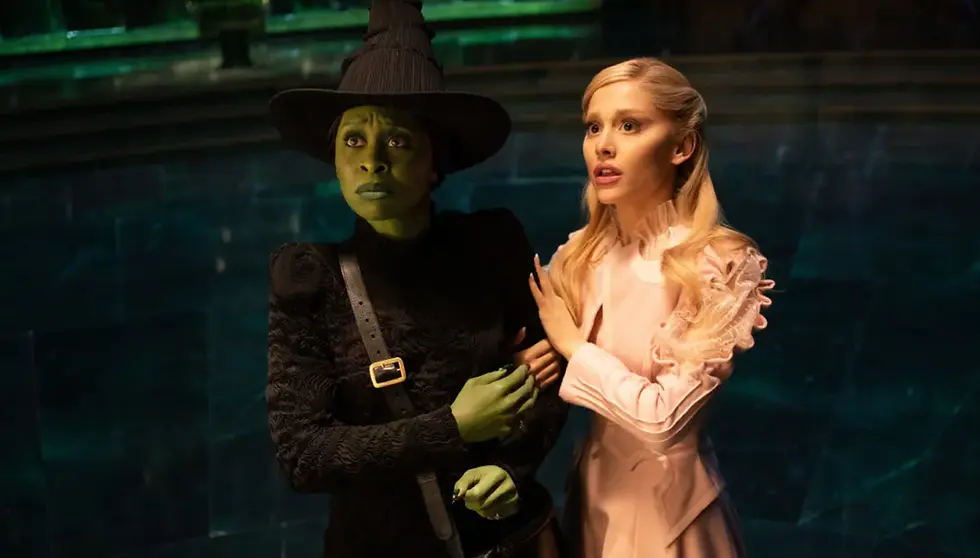Gauhar Jaan - The Datia Incident | Omnibus Theatre, Clapham
- comaweng
- Apr 13, 2018
- 3 min read

At least there’s no pretentiousness in this play insofar as the show’s title reveals there is a critical incident that occurs in this play that markedly changes things for everyone concerned. Repeated references are made of “the Datia incident” in a show that bills itself as a ‘historical re-imagining’, which to me is a contradiction in terms. But there are different accounts of what happened when Gauhar Jaan (1873-1930) (Sheetal Kapoor) accepted an invitation from the King of Datia, Maharaja Bhawani Singh Bahadur (1837-1907) (Harmage Singh Kalirai) to perform at his court. The kingdom no longer exists, as the Maharaja of Datia, along with most of the 550+ ‘princely states’ recognised by the British Raj, acceded to the Dominion of India after India’s independence from Britain in 1947.
Which version of the so-called Datia incident is correct? It is impossible to say for certain, for various reasons that are set out in history books and biographies (I recommend ‘My Name Is Gauhar Jaan!’The Life and Times of a Musician by Vikram Sampath). This production, quite cleverly, presents three versions, each of which begins with someone local to whichever region Fred Gaisberg (Jordon Kemp) is travelling through.
The locals are played with some considerable verve and palpable passion by Jas Steven Singh – one of them prefers choruses from Europe like ‘For he’s a jolly good fellow’, dismissing his own country’s music as “too serious”. Gaisberg, working for the Gramophone Company was trying to track down Gauhar Jaan, but encountered difficulties, not least because there were other entertainers and ‘courtesans’ with similar names. Sampath’s book tells of his own need, during his research, to separate this Gauhar Jaan of Calcutta from “Gauhar Jaan of Patiala, Gauhar Jaan Jaipurwali, Miss Gohar (associated with the Parsi Theatrical Company in Bombay” (his list goes on).
Perhaps because the inclusion of a critical incident has become a hallmark of many modern plays, the astonishment that locals appear to have with Gaisberg’s unfamiliarity with ‘the Datia incident’ added comic effect, as if it were a subliminal, even slightly mocking, commentary on the near ubiquity of incidents. It was as though the production was saying, “Welcome to our show! You’ve seen so many shows with critical incidents. Well, we have one too!” But there is much that is unique about this production, too – the inclusion of the sort of music that Gauhar Jaan would have performed permeates the proceedings, sometimes to the irritation of the Maharaja, and it is left to his trusted servant Bakshi Saheb (Devesh Kishore) to try to smooth things over. Whether he succeeds is dependent on which version of the Datia incident should be believed.
This was not a dull and repetitive evening in which one wishes everyone would just stop talking and let Gauhar Jaan sing. Combined, the uncertainties and differences in the details of the story, and who said what to whom, prove for a fascinating couple of hours. The lighting (Paul Micah) works well to add to the already apprehensive, or light, atmosphere. There are even parallels between what happened in Datia (which, thanks to this production, doesn’t stay in Datia) and what happens today: I have never been a recording artist or performer, but I have done what Gauhar Jaan did. I have agreed to lengthy and jargon-filled terms and conditions, signing off on a document which I never read in full.
If only the story of Gauhar Jaan were explored more. The audience is made aware that Gaisberg succeeded in tracking her down and that they made a gramophone recording. But then the show abruptly ends, and there is no indication of how many records were sold, or what she went on to do post-Datia. Then again, it is better for a show to leave an audience wanting more than to outstay its welcome, and this absorbing production is a useful introduction to one of the most influential musicians of her generation.
Four stars
Omnibus Theatre, until 29 April 2018
7.30pm Tuesday to Sunday, and 4pm Sunday
India, October 1902. Fred Gaisberg is traveling across the country capturing the exotic sounds of the East to be played on his miraculous new machine, the gramophone. He is hoping to record the beautiful voice of Gauhar Jaan, a young courtesan famed not only for her musical prowess but her arrogance.
Numerous travellers Gaisberg meets along the way recount the famous Datia Incident where the Maharaja and Gauhar Jaan ‘the Queen of the Arts’ indulged in a fierce battle of egos, the outcome of which threatens Gaisberg’s mission. Each tells the tale of what happened on that dark day in Datia. So what exactly happened?




Comments